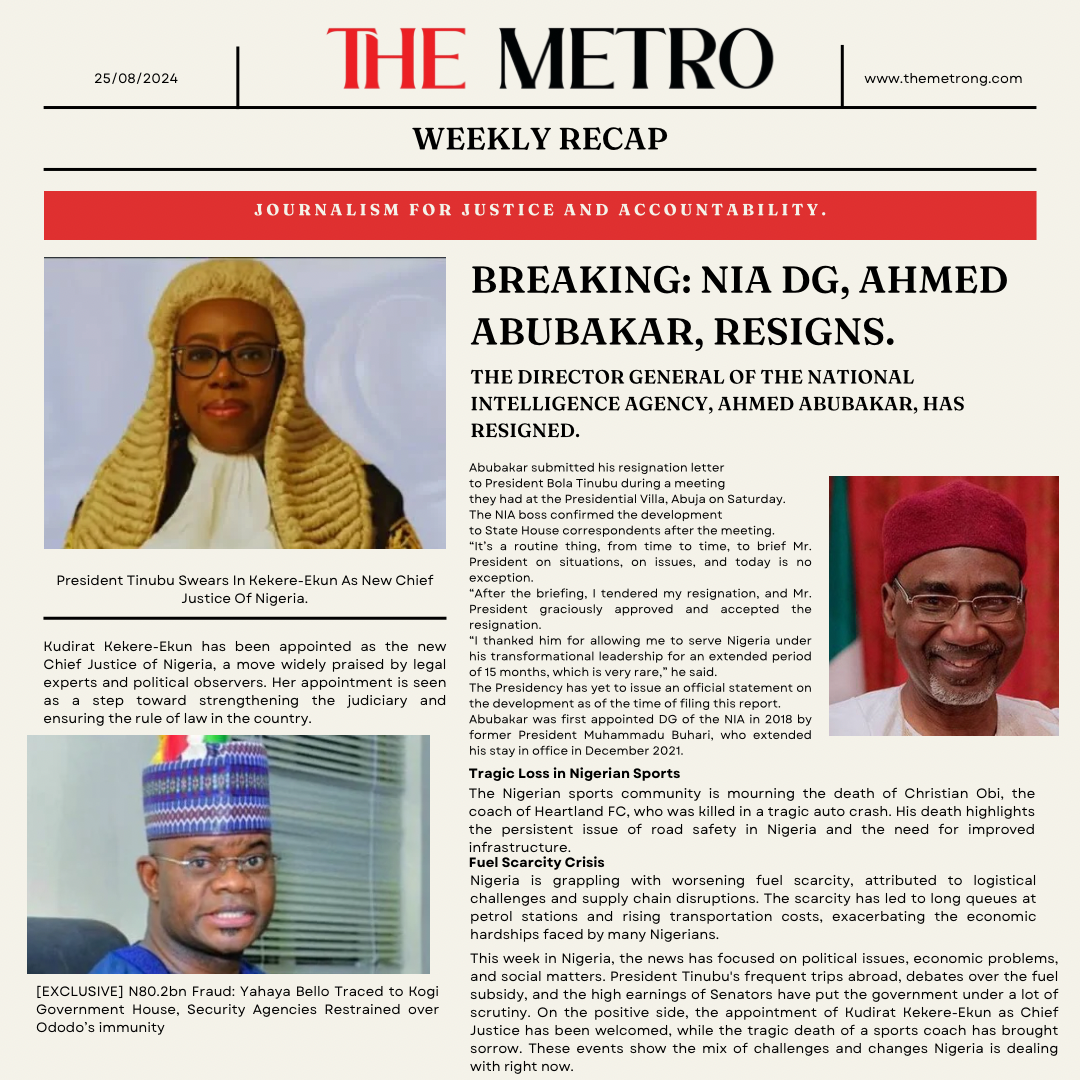1. Presidential Travel Scrutiny Intensifies
President Bola Tinubu has embarked on his fourth trip to Europe since taking office, raising eyebrows among Nigerians who are concerned about the frequency of his international travels. Critics argue that these trips come at a time when pressing domestic issues demand the President’s attention. The nature of these visits, whether for official purposes or personal matters, has not been fully disclosed, leading to speculation and debate.
2. Labour Union Leadership Under Fire
The President of the Nigeria Labour Congress (NLC), Joe Ajaero, was summoned by the police amid allegations of terrorism financing. This move has sparked outrage among union members and civil society groups, who see it as an attempt to intimidate and undermine the labor movement. The NLC has denied the allegations, insisting that Ajaero’s activities are strictly focused on protecting workers’ rights and welfare.
3. Fuel Subsidy Discrepancy
Former Vice President Atiku Abubakar has publicly challenged President Tinubu’s administration, accusing it of continuing the controversial fuel subsidy, despite earlier claims that it had been removed. This accusation has led to confusion and calls for greater transparency in the government’s handling of fuel subsidies, a highly sensitive issue in Nigeria’s economy.
4. Dangote Refinery’s Strategic Shift
In a significant development for Nigeria’s oil sector, the Federal Government announced that the Dangote Refinery will begin purchasing crude oil in naira from October 1st. This policy shift is expected to bolster the local currency and reduce the dependence on foreign exchange, but it also raises questions about the long-term impact on oil prices and the economy.
5. ASUU’s Ultimatum
The Academic Staff Union of Universities (ASUU) has issued a 21-day ultimatum to the Federal Government, threatening to resume strikes if their longstanding demands are not addressed. The demands include better funding for universities and the implementation of previously agreed-upon terms. The possibility of another strike has sparked concerns about the future of Nigeria’s higher education system.
6. Senate Earnings Exposed
Former Senator Elisha Abbo’s revelation that Nigerian Senators earn ₦29 million monthly has reignited debates over the cost of governance. The disclosure has led to public outcry, with many questioning the justification for such high earnings in a country facing significant economic challenges.
7. Fuel Scarcity Crisis
Nigeria is grappling with worsening fuel scarcity, attributed to logistical challenges and supply chain disruptions. The scarcity has led to long queues at petrol stations and rising transportation costs, exacerbating the economic hardships faced by many Nigerians.
8. New Chief Justice Appointed
Kudirat Kekere-Ekun has been appointed as the new Chief Justice of Nigeria, a move widely praised by legal experts and political observers. Her appointment is seen as a step toward strengthening the judiciary and ensuring the rule of law in the country.
9. Tragic Loss in Nigerian Sports
The Nigerian sports community is mourning the death of Christian Obi, the coach of Heartland FC, who was killed in a tragic auto crash. His death highlights the persistent issue of road safety in Nigeria and the need for improved infrastructure.

